After going through these questions during my season of singleness, I met my boyfriend when I did not quite expect it. I must admit that dating was rather daunting for me at first.
But I’ve since learned that dating doesn’t have to be a foggy experience. It shouldn’t be filled with guessing games, uncertainties and thoughts of “what ifs” keeping you awake at night.
Instead, dating should be a season of clarity – to clarify whether you and your partner are ready to move on to marriage together.
So, based on insights from books and sermons, the wisdom of mentors as well as lessons learnt from our previous dating experiences, we’ve come up with seven areas to help us make the most of our dating season and gauge our readiness for marriage:
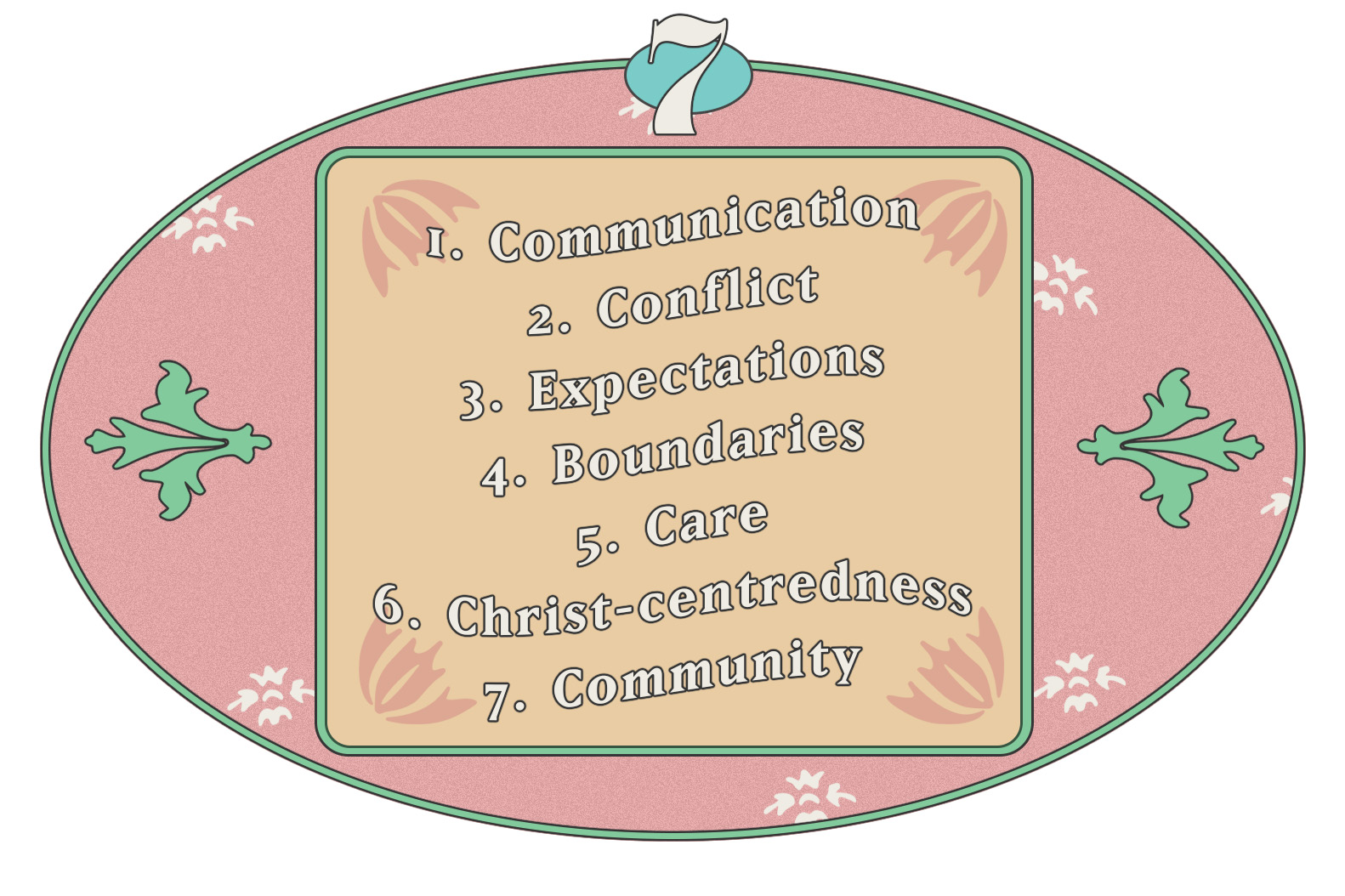
1. COMMUNICATION
During the few in-person dates we had before the COVID lockdown, my boyfriend admitted that he was not a texter. So we agreed to video-call each other in the evenings and this proved highly enjoyable for us both (according to my diary, we had video-called each other 64 evenings in a row).
Post lockdown, we’ve made it a point to physically meet once a week and video-call each other twice a week. These scheduled calls and meet-ups helped us get used to (and enjoy!) regularly seeing and being with each other.
To get to know each other better, our talking points often revolved around what we’re learning from our day or in relation to what’s happening around the world. We also felt comfortable enough early on to share our life goals as well as our expectations and hopes for the relationship.
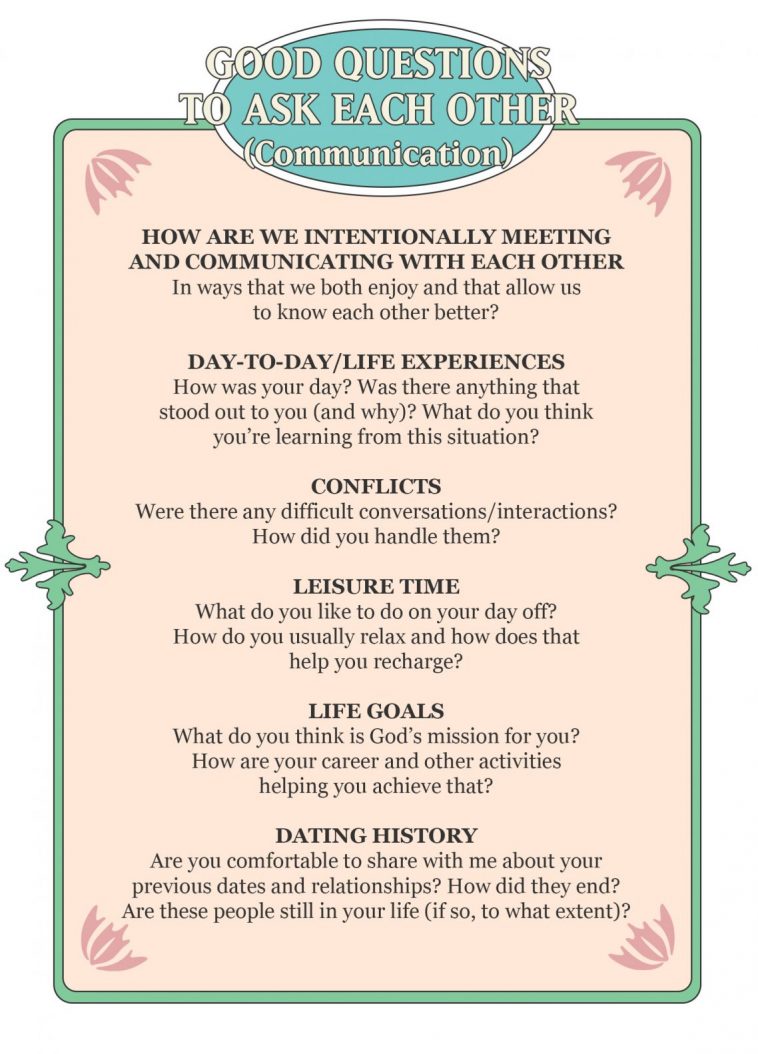
2. CONFLICT
I had expected that there would be tense moments in our relationship, so when they came I was (sort of) mentally prepared.
Instead of confronting him in a way that would trigger defensiveness or instigate a cold war (i.e. the silent treatment), I tried my best to gain clarity about the issue by:
- asking him what his intentions behind his actions were (i.e. what he had wanted to happen).
- sharing with him how his actions came across to me.
- reflecting on how we could do better if a similar situation comes up in the future.
This became especially important when I realised I felt uncomfortable with my boyfriend talking about his ex-girlfriend while we were with his friends.
Instead of letting those feelings linger and scolding myself for being “unaccepting” and “hard to please”, I decided to be honest with him about how I felt. But first, I gave him a chance to explain why he brought up his ex-girlfriend in that moment.
After sharing our perspectives, we agreed that he would not talk about her anymore when I’m around and we’re with other people.
When it comes to resolving conflict, both of us usually have “good” reasons for what we want, but we decided to follow my father’s advice as a rule of thumb: “It’s not about what I want or what you want; it’s about what we together want.”
This helps us keep the focus on solving an issue together as a unit.
We’ve also learned that, to settle conflicts in a healthy manner, we need to:
- not ignore things about our partner if they really bother us, since it is very likely these will come up again.
- settle them as soon as we can, in the best possible time and way (face-to-face meet-ups work best for us).
- learn to ask clarifying questions instead of accusatory ones (e.g. “How can I better understand why those words were said?” instead of “Why did you say that?”) and to apologise at the earliest opportunity.
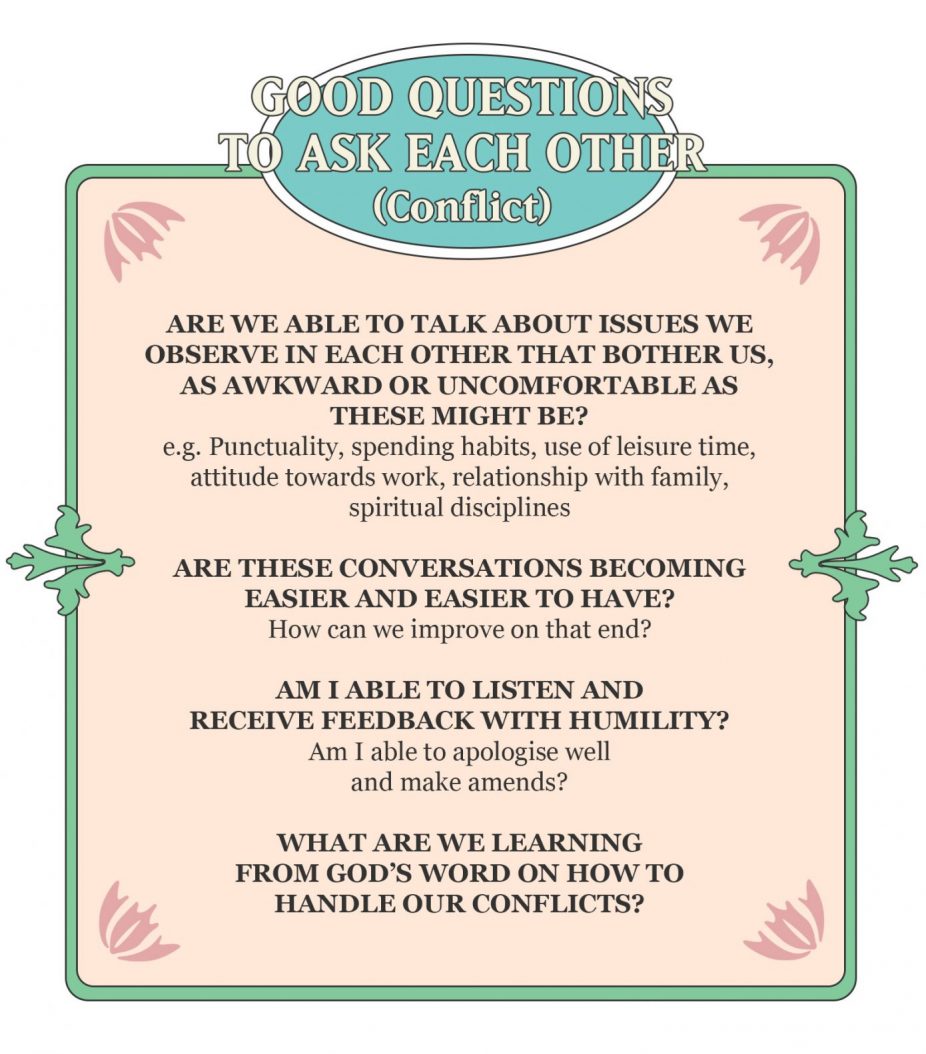
3. EXPECTATIONS
Perhaps the foggiest part of dating comes in the form of two questions: “Where are we at now?” and “Where are we headed?”
There isn’t a formula to gauge when to bring up these questions (though usually not on your first date). But they should be addressed when you know it’s time to “define the relationship” to ensure that you’re both on the same page.
If either (or both) of you is (are) feeling unsure about the relationship and would like to hit pause, then make sure to slow down and not move forward without clarifying when you’d revisit these questions.
In the same vein, if both of you are clear that you’re headed towards marriage and are ready for it (spiritually, financially, emotionally, etc), you could begin to set a time for your next milestone, i.e. engagement and, eventually, marriage.
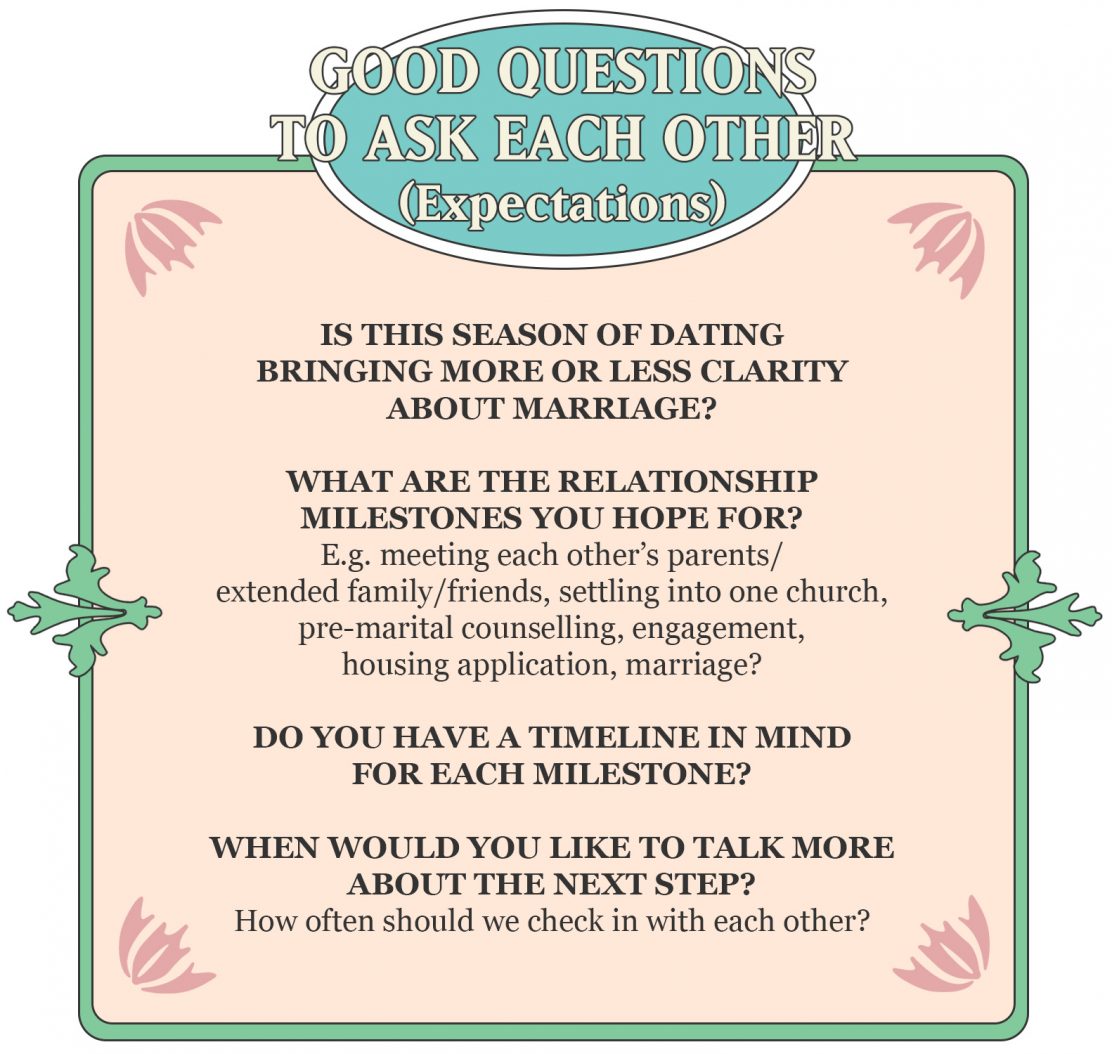
4. BOUNDARIES
Two good boundaries questions I have asked myself are:
- “Will I feel the need to apologise to my boyfriend’s future spouse, his parents and to God?”
- “Will my dating experience encourage my future child or a younger believer in the faith?”
Until we actually say “I do”, we may not end up marrying each other. So, these two questions help us keep our relationship in perspective, and to remember that a short moment of pleasure may lead to a lifetime of regret.
Even as men are encouraged to take the lead in setting the pace and expectations of the relationship, women also have a role in shaping the conversation. In our case, I initiated the conversation with my boyfriend, who has allowed me to set the pace (and limits) for our physical boundaries.
It hasn’t been easy, but by God’s grace we are able to be open in our confession and actively surrender our lust before God, while being reminded that God wants us to remain pure in all aspects of our lives.
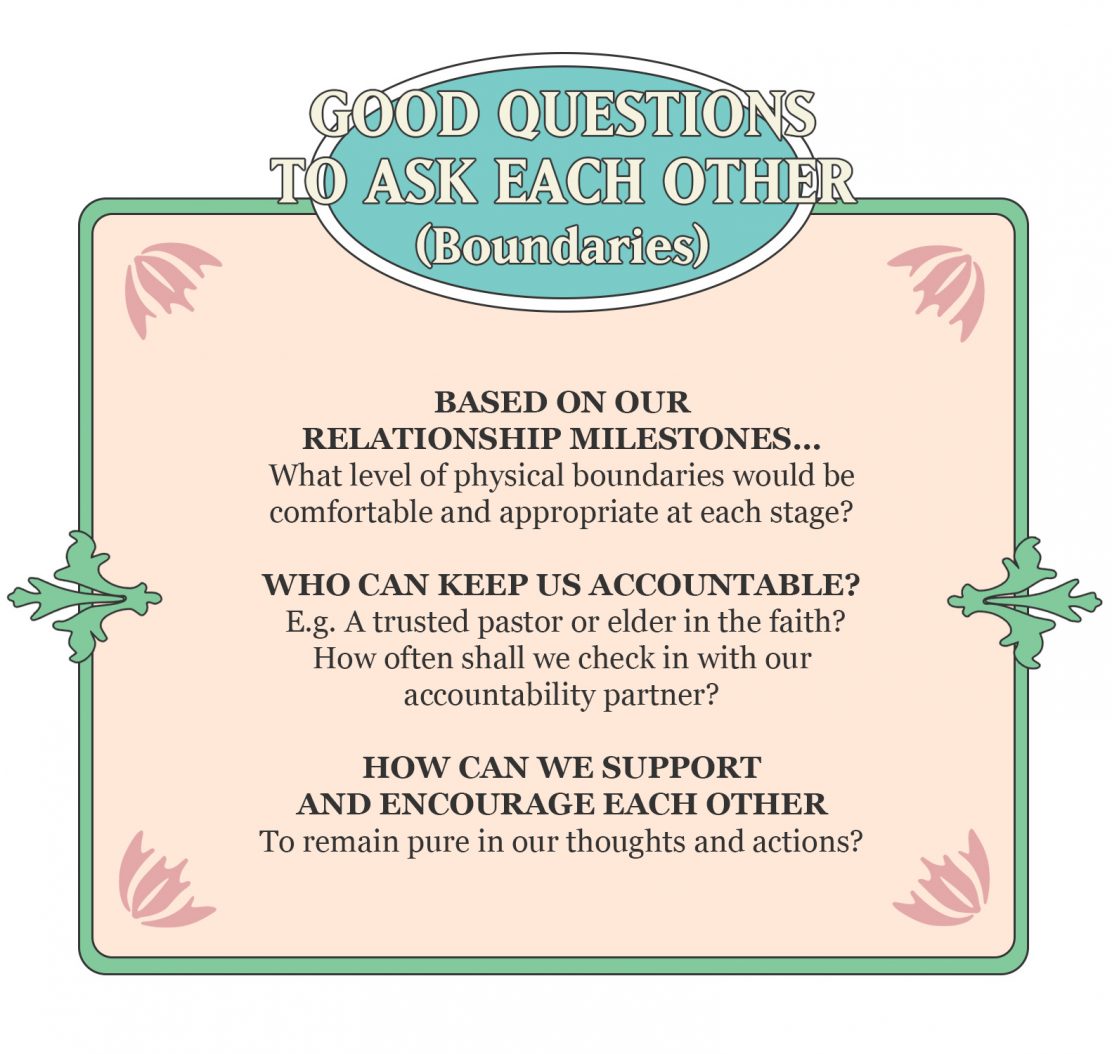
5. CARE
Early on in our relationship, my boyfriend and I had shared our love languages with each other. It helped that we have a common one – quality time – and so made sure to schedule face-to-face time together and take long walks whenever we can just to enjoy each other’s presence.
We also plan activities to help each other grow. For instance, after both sharing that we wanted to grow in prayer and in loving our families, we decided to pray for our family members. This was especially important to us since we are close with our families and want to love them better with God’s help.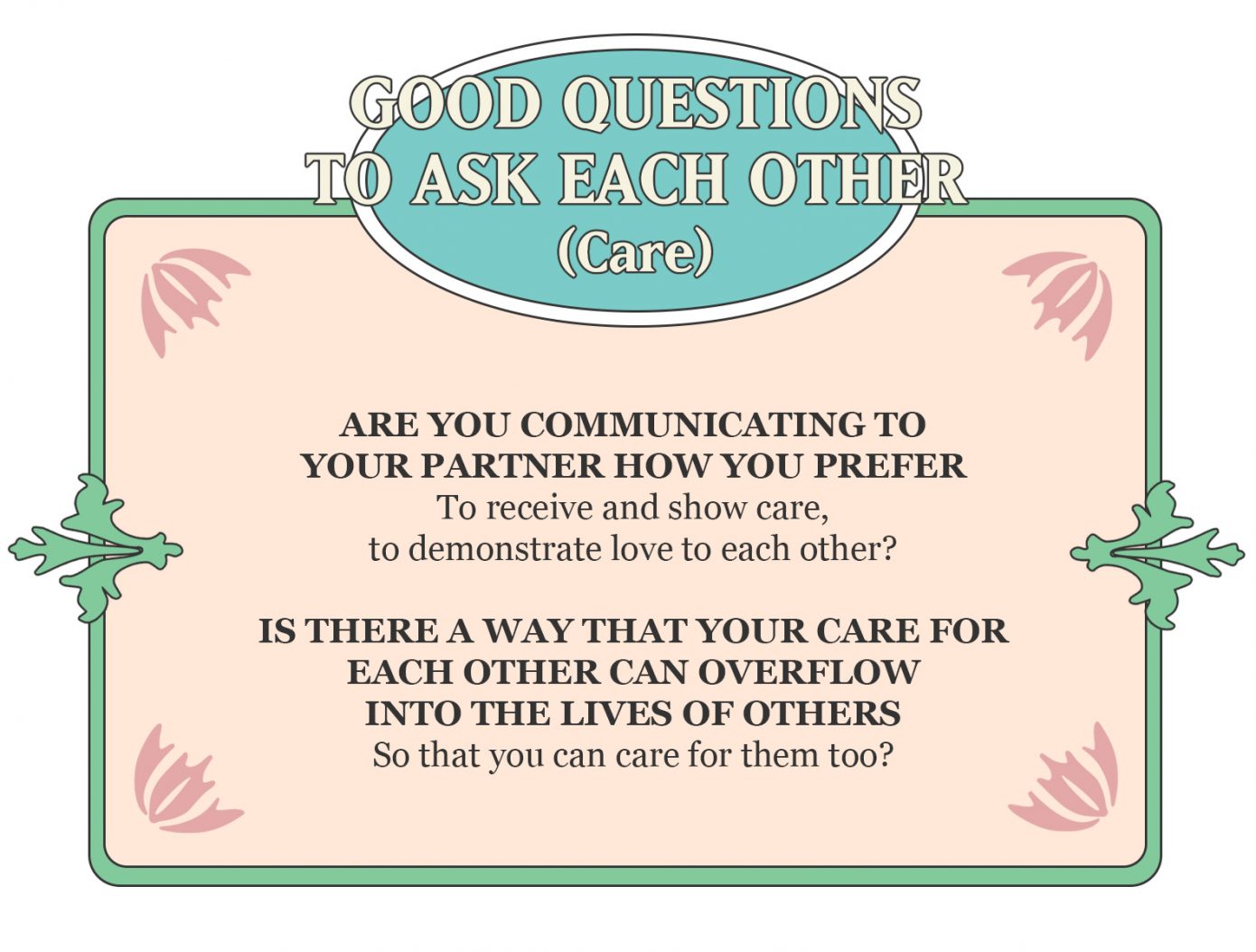
6. CHRIST-CENTREDNESS
Before we started dating, it was a non-negotiable for both of us to date a fellow Christian who is serious about loving and following Jesus.
On my part, I made sure to ask him early on about his church attendance, small group accountability and daily walk with Christ. I wanted him to be independent in his relationship with Christ and not pursue one on my account.
Aside from our personal quiet times, I also initiated regular prayer time together so that it would become a habit for us as a couple. Gradually, my boyfriend started initiating these prayer times as well and we regularly encourage each other with God’s Word.
Since we both want a married life that’s filled with prayer, worship and faith conversations, practising these disciplines now can help ensure that these continue if we get married.
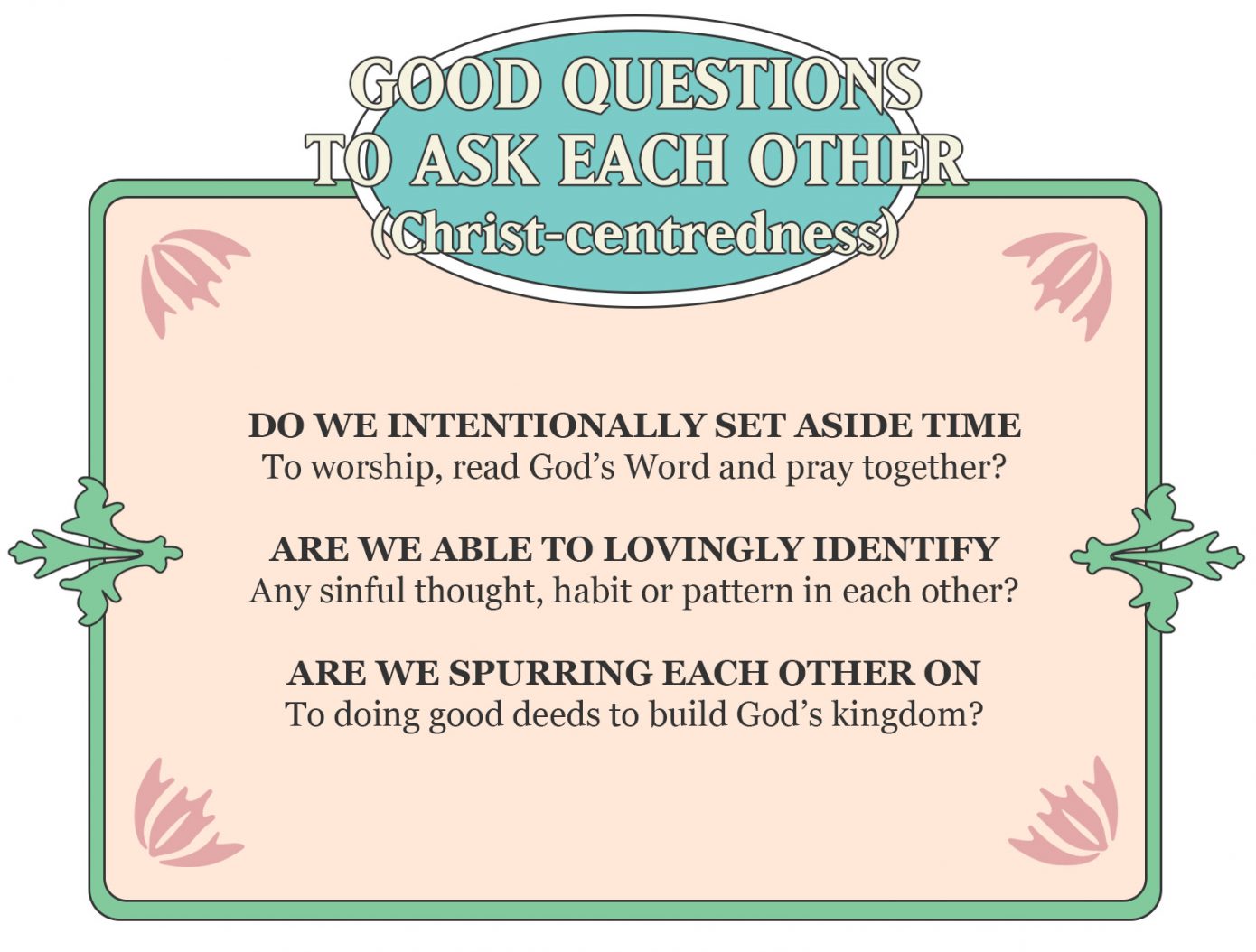
7. COMMUNITY
Community is a vital life source for believers, whether single or married.
As we’ve grown in our relationship, our Christian community has played a huge role in challenging us towards godliness and we’ve given them the freedom to identify relationship red flags (e.g., questionable habits or addictions) and unhealthy (or lack of) dating boundaries.
We’ve also benefited from the counsel of mature married couples who have drawn from their experience to encourage, guide us and even admonish us out of love.
Community is also a great place to grow our spiritual gifts. As my boyfriend and I have a common interest in songwriting, we have started to collaborate with others to create music for our Christian communities, for worship and to help point others to God.
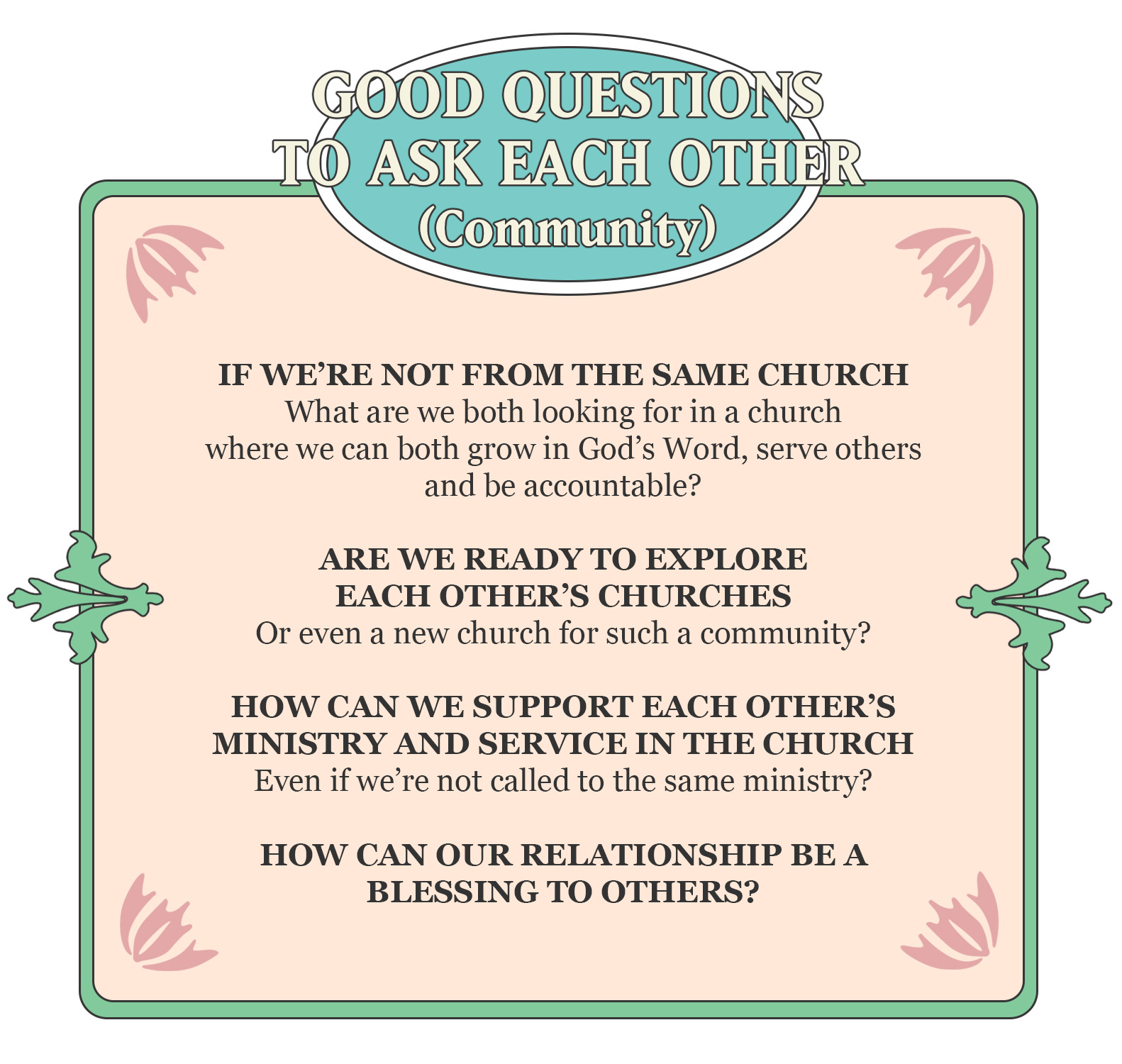
If you’re currently in a relationship, I hope these seven areas will help your partner and you grow in clarity and Christlikeness. Even as we seek to grow in these areas, let’s not forget Who we’re doing it for – and that true growth comes from God alone:
Lord Jesus, thank You for Your example in clearly stating Your plans and intentions with Your disciples on earth – and with us today. I pray for all of us who are dating to follow Your lead in making things clear to our partners so we can love one another well – beginning with these seven areas. Hold every dating couple close to Your heart and grant them clarity in their relationship so that each will know how best to glorify You.
In Jesus’ Name, I pray, Amen!
This article was first published on YMI and is republished with permission.
- Are you dating with marriage in mind?
- Which of these areas do you struggle with the most?
- Is your relationship with one another taking priority over your relationship with God?









